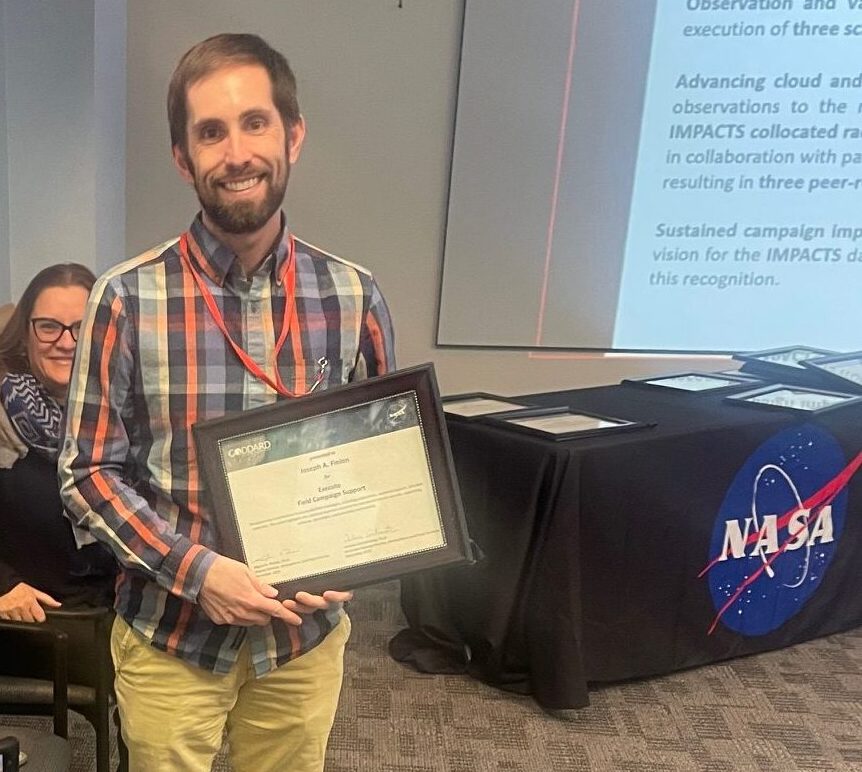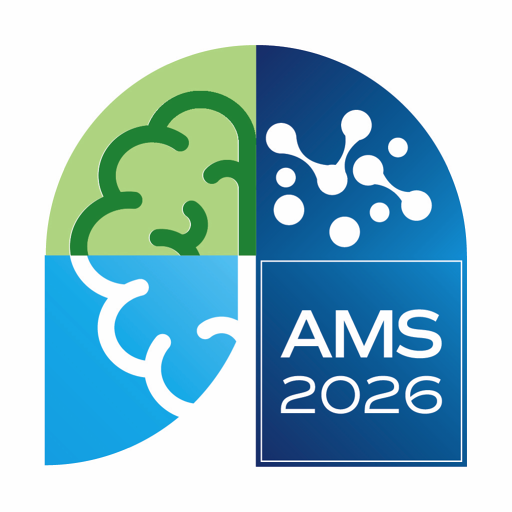On December 17, the Earth System Science Interdisciplinary Center had its annual holiday party. As per tradition, three annual peer awards were presented to honor the year’s Employee of the Year, Best Paper, and Outstanding Technical Achievement. This year, Interim Director Ralph Ferraro presented these awards to Ann Legall, Jing Wei, and John Xun Yang. He also presented the winners of the 2023-2024 Snow Prediction Pool, Corinne Carter and Chip Helms.
Special thanks to Brenda Torney for chairing the Employee of the Year committee and Chelsea Parker for chairing the Best Paper committee.
ESSIC Employee of the Year
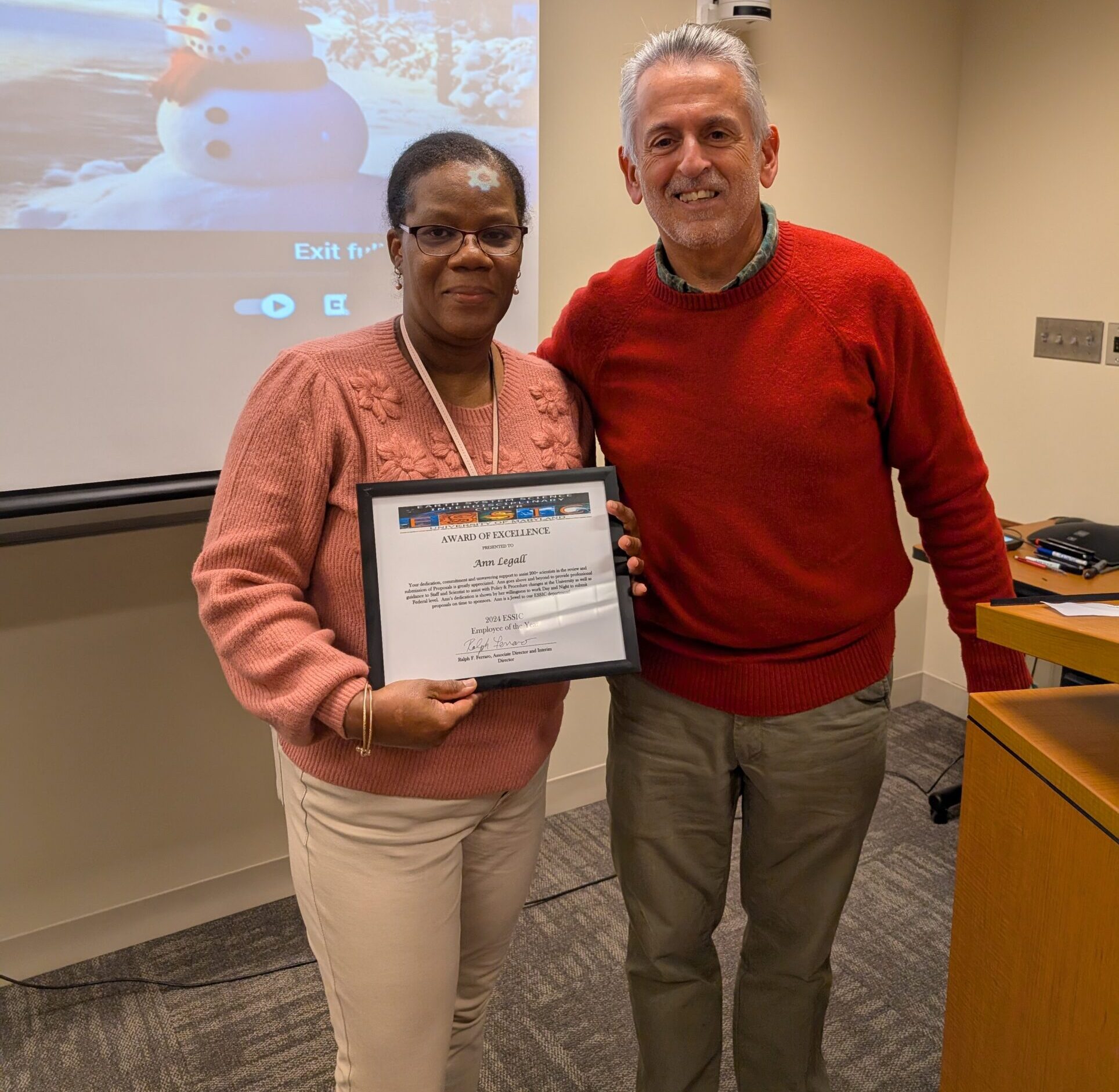
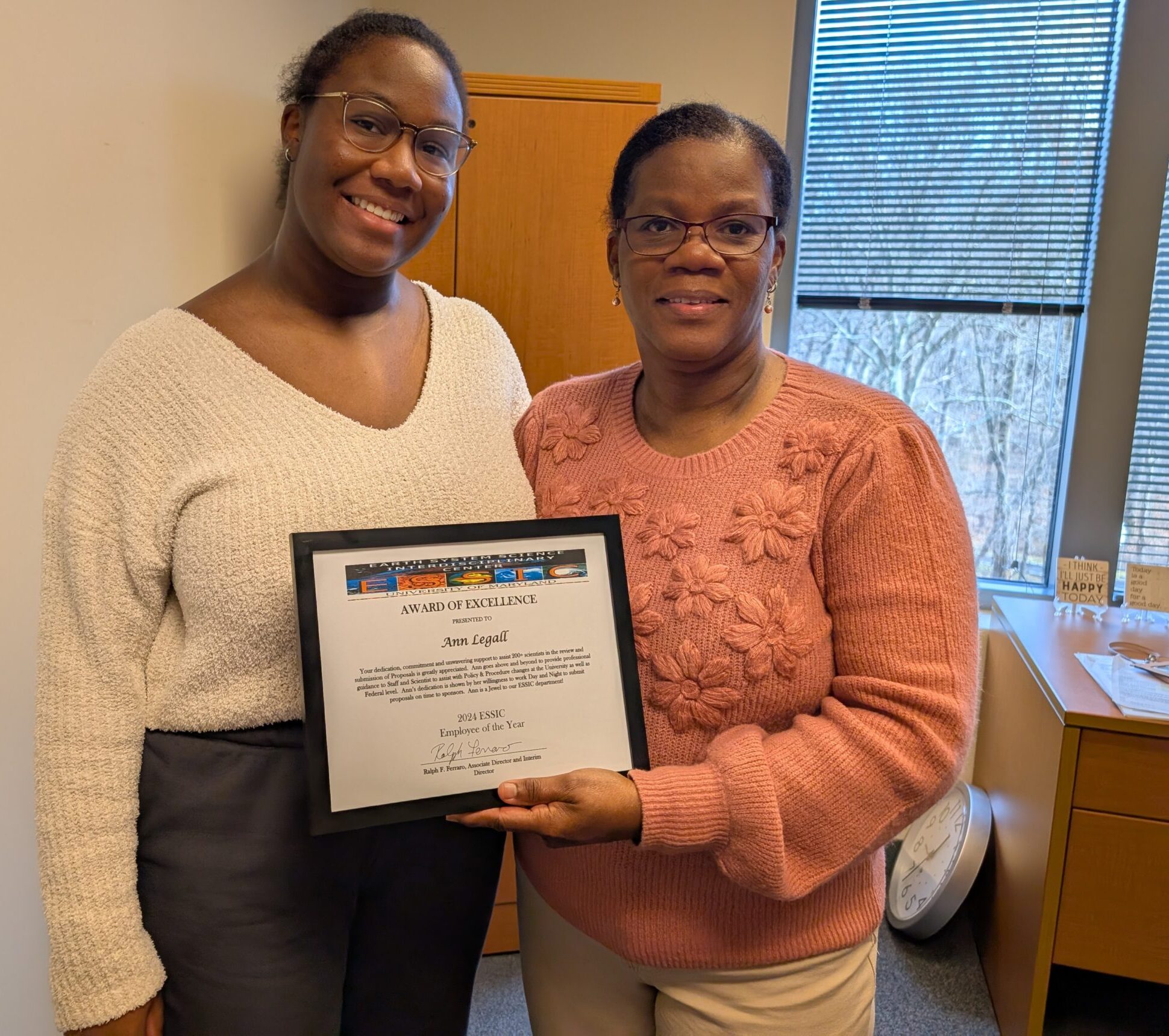
Ann Legall, Proposal Manager
Ann Legall consistently demonstrates an outstanding commitment to service excellence in all interactions with faculty, staff, and other constituents. As Proposal Manager, Ann oversaw the processing and submission of over 100 proposals this year, along with providing guidance to other staff members tasked with submitting proposals. She was also able to successfully guide PI’s and the staff through multiple policy and procedural changes on both the university and federal level this year. She is known for going beyond the call of duty – she is known for working after hours or on weekends to support with submitting a proposal on time to a sponsor, answer a question that a PI is asking for the tenth time, or join a Zoom call to show a team member step by step the process to complete a task successfully. This shows Ann is not only dedicated to her success, but to the success of all stakeholders. Additionally, her proactive initiatives to identify and implement process improvements have contributed significantly to enhancing both the effectiveness and efficiency of ESSIC operations. Ann Legall is an invaluable asset to the team and consistently sets a high standard of performance and dedication.
Best Paper
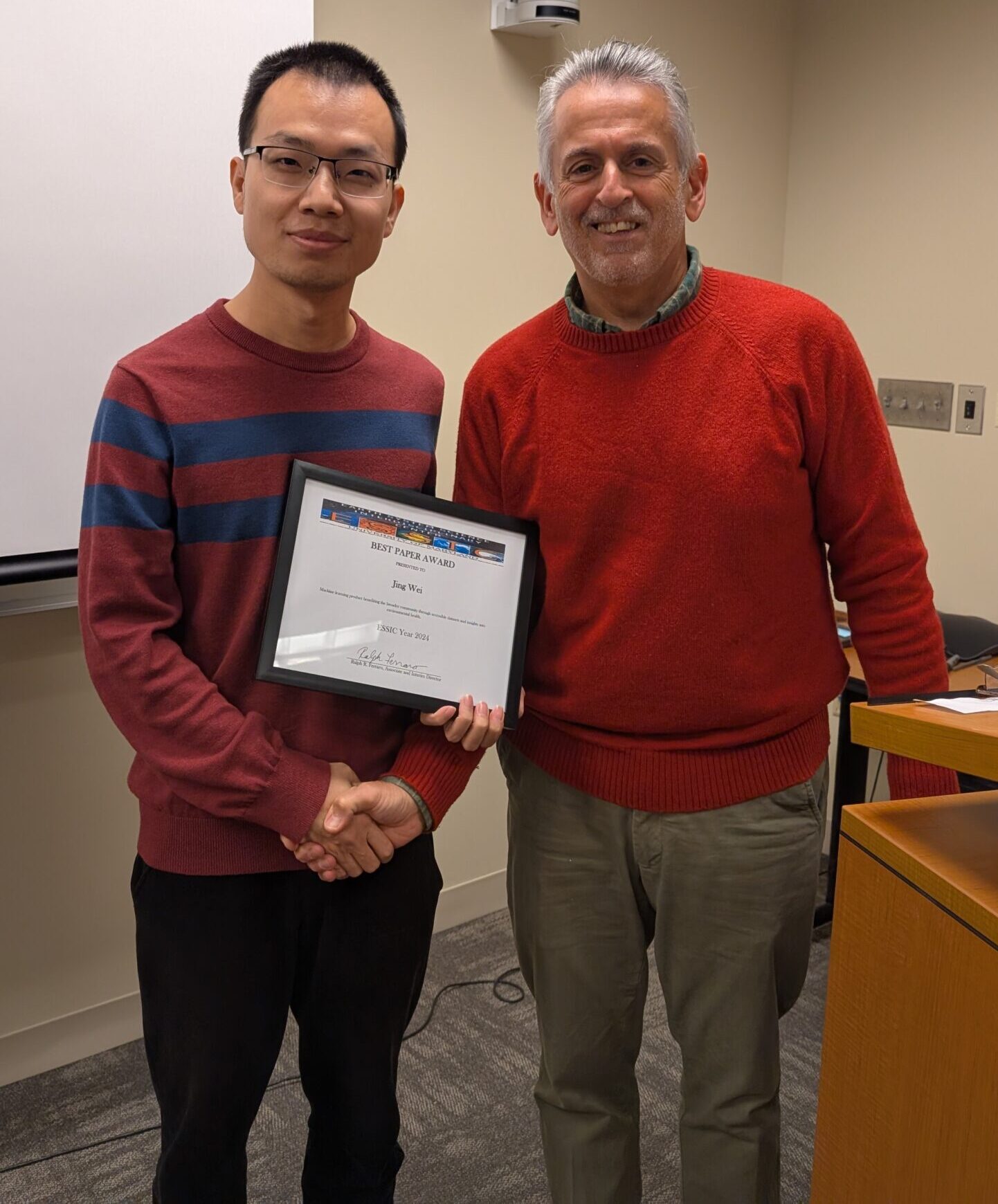
Jing Wei for their paper titled “First close insight into global daily gapless 1km PM2.5 pollution, variability, and health impact” published in Nature Communications, 2023
This paper uses a novel, machine learning method to fill in data gaps and produce a new, daily, 1km resolution product of PM2.5 concentrations from 2017 to 2022. The product has been well-validated with ground-based observations. Analysis has revealed that only 1/3 of countries have returned to pre-pandemic levels, demonstrated the impacts of biomass burning-induced events, and showed that there are strong disparities in exposure risks and duration are exhibited between developed and developing countries, urban and rural areas, and different parts of cities. The paper was nominated with a compelling nomination and the work was very engaging and easy to understand. The findings have garnered widespread attention, leading to a blog article for Springer Nature and 25 citations. The dataset is available to the public and has been highly impactful for the community being downloaded over 34,000 times at the time of this award.
Outstanding Technical Achievement Award 2024
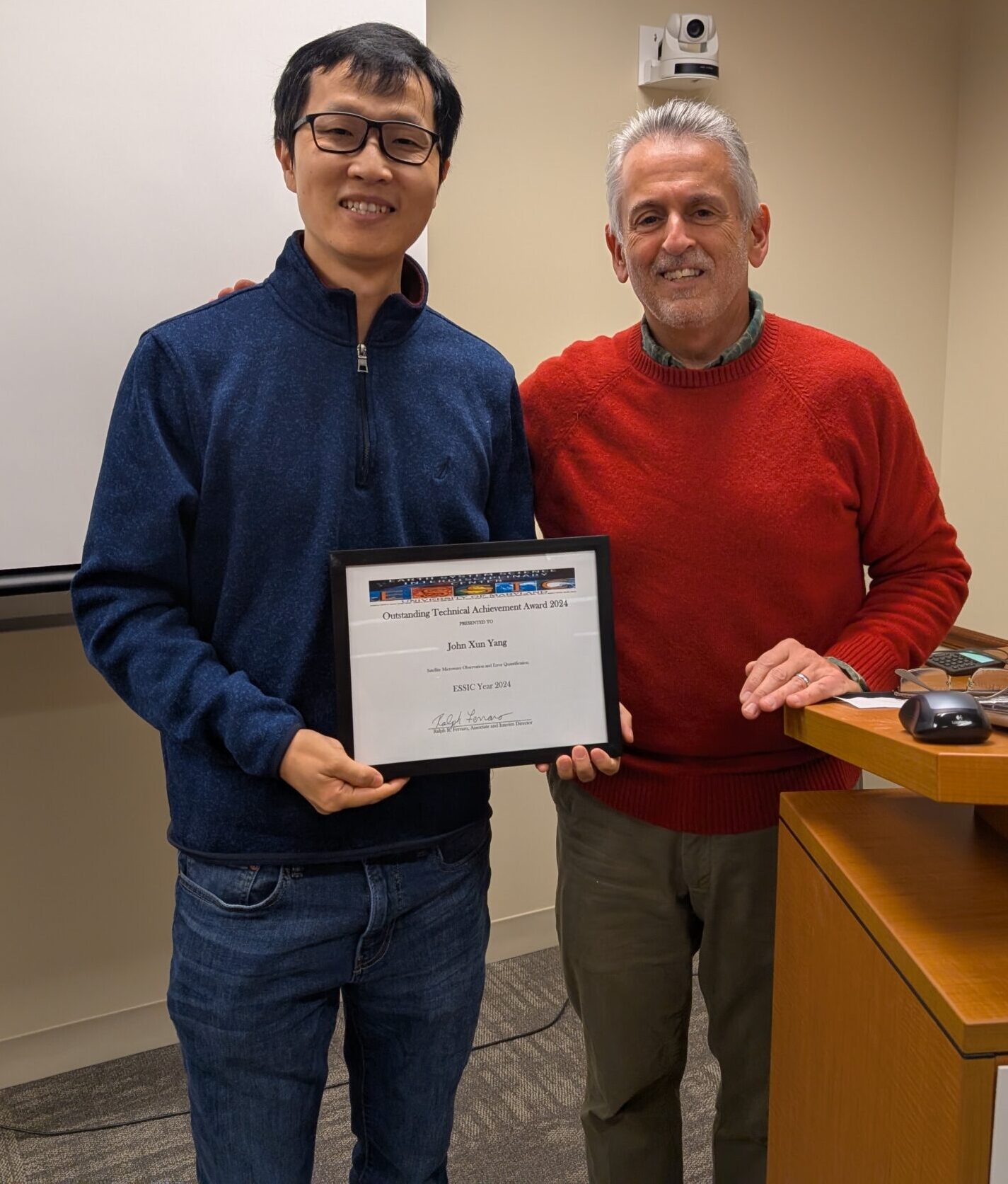
John Xun Yang for “A Community Error Inventory for Satellite Microwave Observation Error Representation and Uncertainty Quantification” published in BAMS 2024
This is a very ambitious study that attempts to develop a framework to comprehensively quantify all observation errors associated with satellite retrievals for radiance and science products. They develop an error inventory simulator, the Satellite Error Representation and Realization (SatERR), to simulate a wide range of observation errors (measurement, observation operator, representativeness, and preprocessing errors) from a bottom-up approach where errors are generated from root sources and forward propagate through radiance and science products. The approach allows for nonlinear effects of error propagation to be analyzed, in contrast to previous approaches such as the tangent linear model. The tool is available through github with clear documentation for the community. While it was developed based on known error-sources, the tool is a community product that can be updated by other scientists and users for other types of satellite retrievals and as new error sources are discovered.
2023-2024 Winter Season Snow Prediction Pool
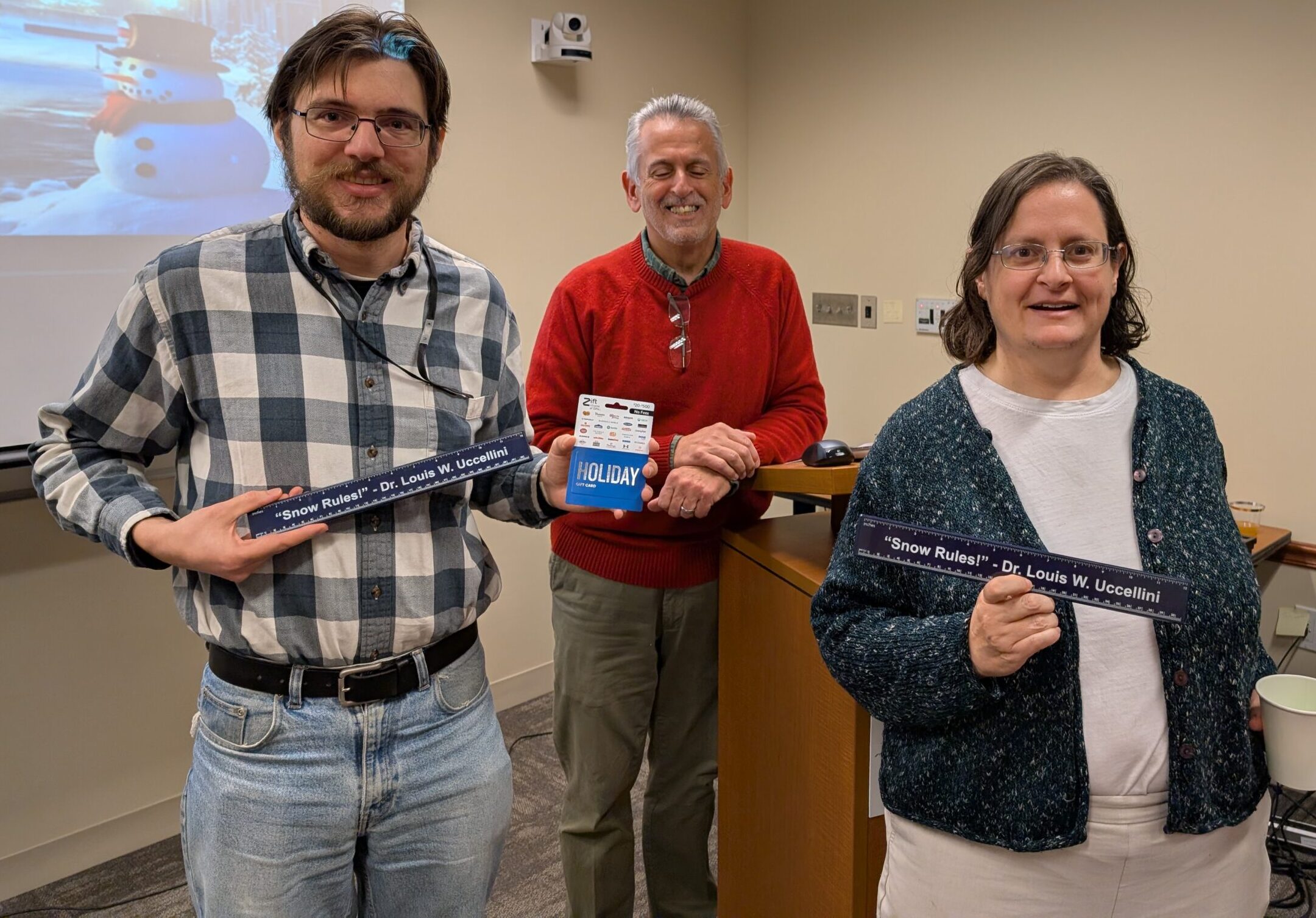
Winners – Corinne Carter & Chip Helms
We saw our first inch of snow in College Park on January 15, and enjoyed 8” of snow throughout the season. We obtained 8” by averaging the totals reported by 3 nearby weather stations who reported every day: PG-40 (Greenbelt 1.0 N) – 9.1”; PG-82 (Beltsville 1.4NNW) – 8.0” and PG-100 (College Park 0.7 NE) – 6.9”.
Corinne Carter guessed the date of the first inch is 1/15/2024 and that we’d get 5 inches overall. Chip also correctly guessed 1/15/2024 and 8.2 inches.

